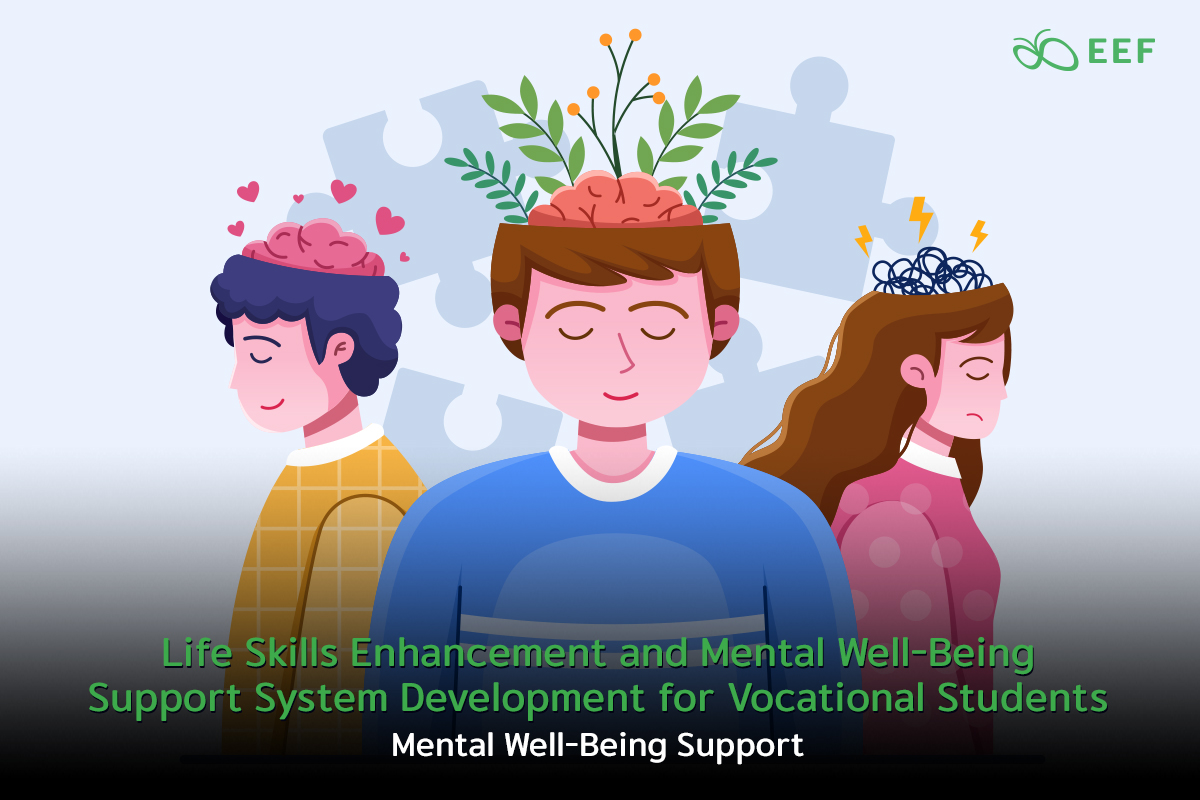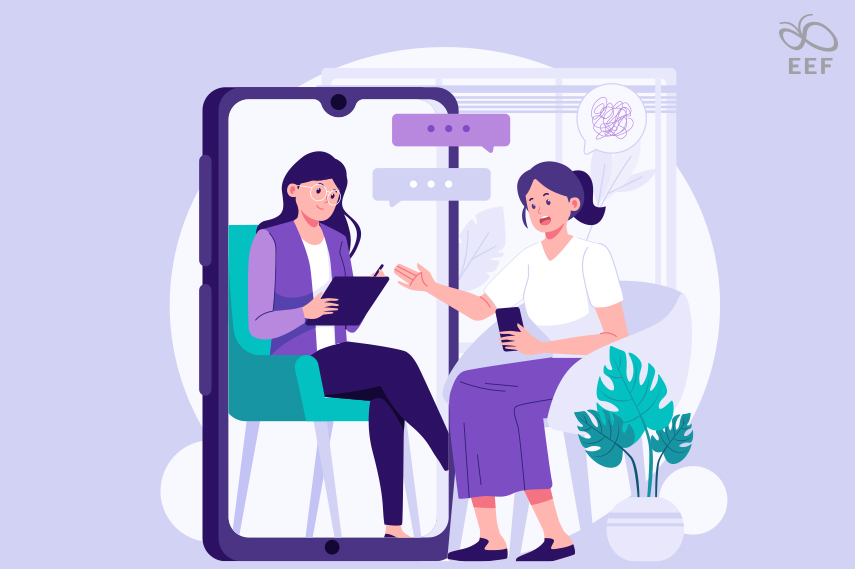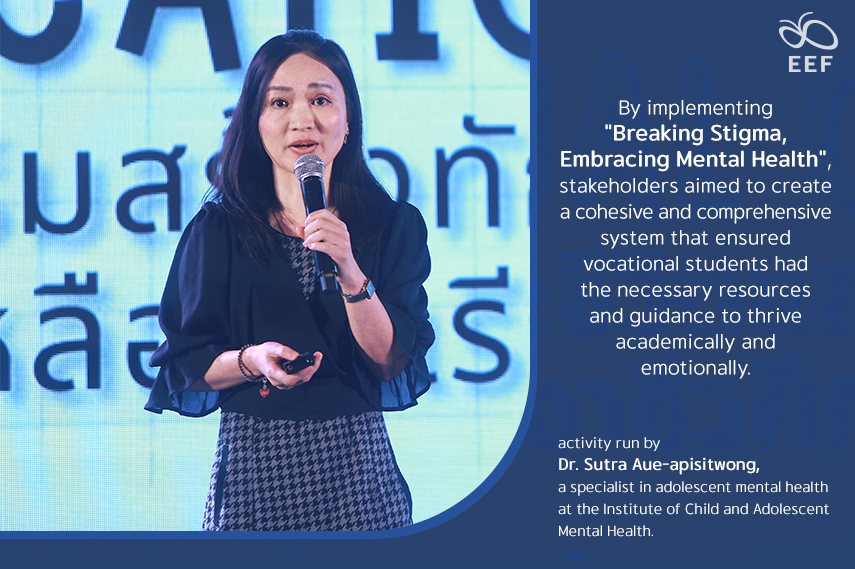
Thailand has embarked on an important endeavor to bridge the gap between education and workforce demands with the launch of the “Life Skills Enhancement and Mental Well-Being Support System Development for Vocational Students” project. Aligned with the 20-Year National Strategy, this initiative acknowledges the crucial role of vocational education in nurturing a skilled workforce among adolescents aged 15 and above. To provide equal opportunities, the Equitable Education Fund (EEF) Thailand has distributed scholarships to financially disadvantaged students, totaling 4,503 individuals thus far. The government aims to achieve a vocational-to-general education ratio of 45:55 to ensure students’ skills align with workforce requirements.
However, vocational students face unique challenges, necessitating attention to their higher risk of engaging in risky behaviors. To tackle this issue, the EEF and the Institute of Child and Adolescent Mental Health have launched a comprehensive project to develop a system that empowers vocational institutions in promoting life skills and providing support to their students. This comprehensive approach aims to foster resilience and facilitate holistic development, enabling vocational students to thrive in the future.

Within the framework of the “Life Skills Enhancement and Mental Well-Being Support System Development for Vocational Students” project, there have been significant efforts to ensure the mental well-being of vocational students through various activities. In the 2021 academic year, a total of 43 vocational institutions organized 5 such activities, benefiting a total of 1,353 students from the third scholarship generation. These activities played a crucial role in enhancing the students’ mental health. Additionally, the digital monitoring system, known as HERO-V, was implemented to ensure the well-being of vocational students. 700 students were monitored, and the results revealed that 68.57% of them had positive well-being. To mitigate potential risks, students received regular monitoring and guidance from teachers. These initiatives underscored the EEF’s commitment to the ongoing efforts outlined in the 20-Year National Strategy and aligned with the mission of the EEF to ensure equitable access to quality education. Some examples of the activities are “Breaking Stigma, Embracing Mental Health” and “Resilient Hearts: Falling Down, Rising Up.”

The growing recognition of the importance of mental health paved the way for improved access to assistance and support for students. As a response to this shift in perspective, the EEF launched the “Breaking Stigma, Embracing Mental Health” activity run by Dr.Sutra Aue-apisitwong, a specialist in adolescent mental health at the Institute of Child and Adolescent Mental Health. This initiative specifically targeted Advanced Career Capital scholarship students who might require counseling or mental assistance due to the unique experiences they encountered. It is crucial to emphasize that addressing mental health concerns involves more than just adjusting attitudes; it necessitates tailored support and interventions that meet the individual needs of students. By implementing this project, stakeholders aimed to create a cohesive and comprehensive system that ensured vocational students had the necessary resources and guidance to thrive academically and emotionally.
Mental health experts played a crucial role in assisting teachers who support Advanced Career Capital, scholarship students. Under the framework of the EEF’s “Resilient Hearts: Falling Down, Rising Up” activity, led by Dr. Chanikarn Salingkarnchayatawat, a psychiatrist at Phang Nga Hospital, mental health experts engaged in conversations and assessments to help teachers organize student groups and provide better care. These interactions empowered students with coping strategies, fostering emotional resilience and helping them navigate obstacles. By listening to students, identifying strengths and weaknesses, and offering problem-solving strategies, experts tailored their support. They also addressed challenges from students’ home environments. The project aimed to mentally prepare students for their vocational careers, nurturing their resilience until completion. While every student aspires to succeed in vocational education, they may face obstacles and limited opportunities. In such cases, mental health experts provided essential support to reignite motivation.

Thailand’s “Life Skills Enhancement and Mental Well-Being Support System Development for Vocational Students” project demonstrates the country’s proactive approach to bridging the gap between education and workforce demands. Aligned with the 20-Year National Strategy, this initiative acknowledges the significance of vocational education in cultivating a skilled workforce among youth. Through the EEF, scholarships have been awarded to students with potential but limited financial resources, reflecting the government’s commitment to achieving a balanced vocational-to-general education ratio. By empowering vocational institutions to promote life skills and provide comprehensive support, the EEF and the Institute of Child and Adolescent Mental Health address the unique challenges faced by vocational students, ensuring their resilience and holistic development. Notably, various activities have enhanced students’ life skills, supported by a digital monitoring system that safeguards their well-being. These initiatives underscore the EEF’s dedication to equitable access to quality education and reinforce the importance of addressing mental health stigma. Through these collective efforts, Thailand is equipping vocational students with the tools they need to thrive and succeed in the future workforce.
Source: Equity Vocational Care. a vocational education program by Equitable Education Fund Thailand (EEF Thailand).
https://sites.google.com/view/cctcamri/%E0%B8%AB%E0%B8%99%E0%B8%B2%E0%B9%81%E0%B8%A3%E0%B8%81

